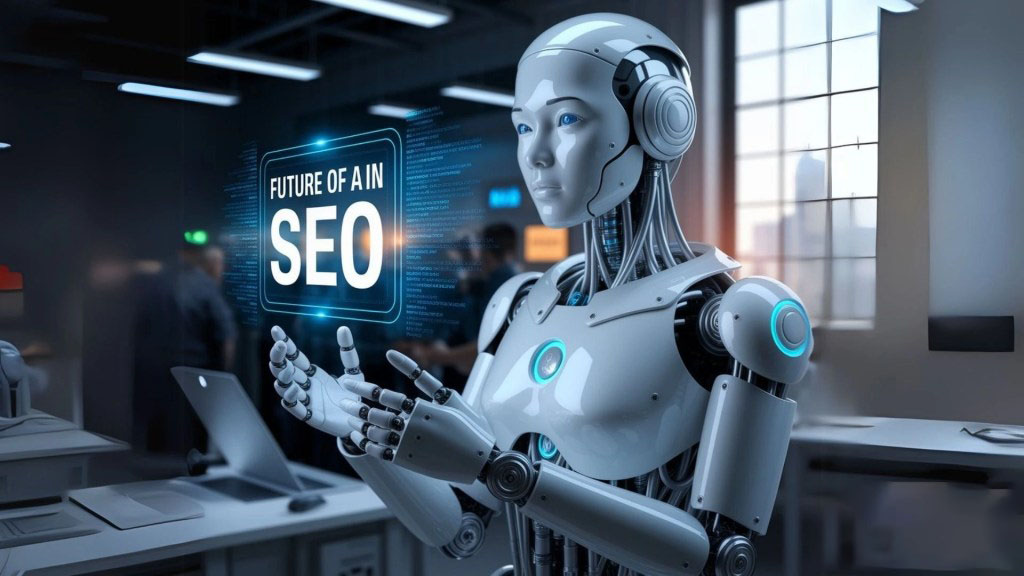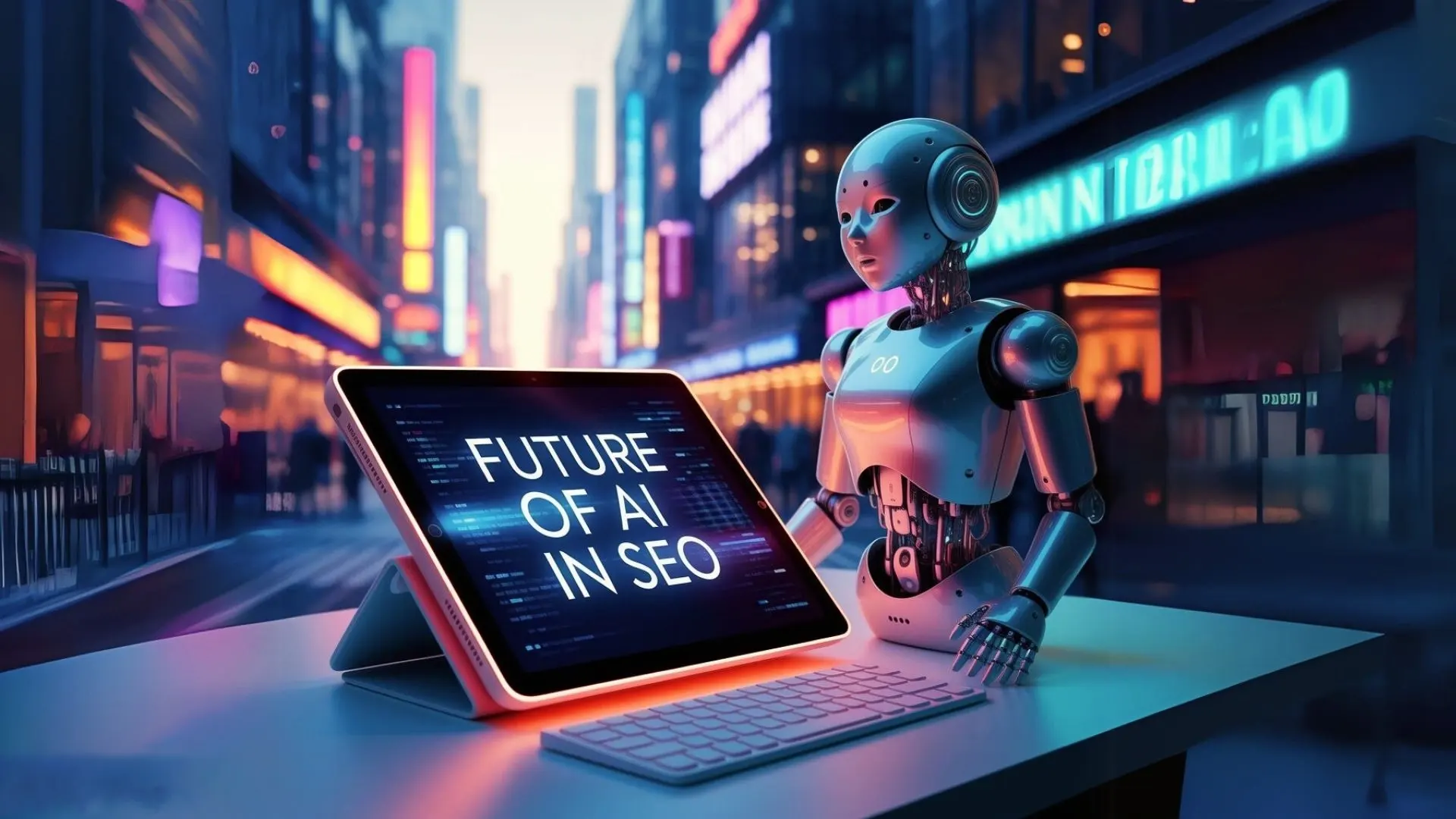Search engine optimization has evolved far beyond keywords and backlinks. In today’s digital era, artificial intelligence reshapes how search engines rank content and marketers approach SEO. It’s not just a trend that AI is increasingly used in SEO. It’s a significant change that will change how internet marketers work for years. For digital marketers , staying ahead of these changes is critical. Understanding how AI influences algorithms, user behavior, and content creation can be the difference between leading the market and being left behind. In this article, we dive deep into the future of AI in SEO and explore what this transformation means for marketers.
Understanding AI in SEO
Artificial intelligence in SEO refers to the use of machine learning algorithms and data-driven automation to optimize websites for search engines. Google’s RankBrain and BERT are among the earliest examples of AI-powered systems that revolutionized how search engines interpret queries.
AI-driven SEO learns and changes all the time, unlike traditional SEO that relies on manual updates and fixed tactics. It works with very large datasets, looks for patterns, and makes choices that affect how material is ranked and shown to users.
AI is also used to make content, improve technology, and get ready for voice search. It is an important part of current search strategies because it can figure out what the user wants and what the search is about.
How AI is Changing Search Engine Algorithms

AI is now deeply embedded in how search engines understand content and user intent. Instead of focusing purely on keywords, AI looks at the context behind queries. This means search engines are better at distinguishing between similar terms with different meanings. Search engines now prioritize relevance and user satisfaction over keyword stuffing . AI models evaluate signals such as bounce rate, dwell time, and click-through rates to determine if a page truly satisfies the user’s intent.
Voice search is also a growing frontier driven by AI. It’s important to optimize for conversational questions as more people use virtual assistants. Better than ever, search engines are learning how to answer natural language and long-tail questions. For marketers, this shift means that writing content solely around keywords is no longer enough. A focus on context, semantic search, and user experience is essential to remain competitive.
AI and Content Creation
AI has started to influence not just how content is ranked but how it is created. Tools powered by AI can now generate topic ideas, suggest keywords, and even write basic content drafts. These tools analyze top-performing pages, identify gaps, and recommend strategies for improvement.
While AI-generated content can be helpful, human oversight remains necessary. Search engines still reward original, authoritative content that provides real value. AI should be seen as a tool that enhances creativity and efficiency, not a replacement for human expertise.
Content optimization is also benefiting from AI. Tools like natural language processing can evaluate tone, structure, and readability to ensure content aligns with both audience expectations and search engine preferences.
This evolving capability allows marketers to scale their efforts, test new formats, and refine messaging with unprecedented speed and precision.
Predictive SEO and Real-Time Insights
One of the most significant advantages of AI in SEO is predictive analysis. AI can forecast trends, identify emerging keywords, and detect shifts in user behavior before they become mainstream. This allows marketers to create proactive strategies rather than reactive ones. Real-time data analysis means campaigns can be adjusted on the fly. Marketers no longer have to wait weeks for performance reports. Instead, they receive immediate feedback on what is working and what is not.
AI-driven systems can advise adjustments based on algorithm updates. As search engines progress, manual updates are practically impossible. Marketers stay nimble and informed without hours of laborious research with AI. This level of insight is revolutionizing SEO decision-making. It empowers marketers to optimize faster, target better, and spend smarter.
Technical SEO and Automation

Technical SEO is another area where AI is making a strong impact. Site audits, broken link detection, crawlability analysis, and page speed assessments can all be automated through AI tools. These platforms highlight critical errors and recommend fixes that once required advanced knowledge and manual review.
Structured data implementation , which improves how search engines understand a site’s content, can now be simplified with AI assistance. Tools can generate markup for articles, products, reviews, and more, enhancing visibility in search results. AI also supports mobile optimization and accessibility improvements, ensuring websites deliver a seamless experience to all users.
AI and Personalized Search Experiences
Search is becoming increasingly personalized. AI enables search engines to tailor results based on a user’s location, search history, device, and behavior. As a result, two users can receive different results for the same query. Marketers must now consider audience segmentation and personalization in their SEO strategies. Generic content is less effective in a world where users expect tailored experiences.
AI helps deliver personalized content recommendations, dynamic landing pages , and adaptive user journeys. This approach not only improves engagement but also increases conversion rates. To succeed, marketers should use AI-powered insights to understand audience behavior and develop content strategies that resonate with specific segments.
Challenges and Ethical Considerations
Despite its advantages, the rise of AI in SEO also presents challenges. Over Reliance on automation can lead to generic or low-quality content. There is also the risk of violating search engine guidelines, especially if AI tools are misused.
Ethical considerations around data privacy and user tracking must be taken seriously. Marketers should ensure that AI-driven strategies comply with regulations and prioritize user trust.
What Marketers Should Focus on Moving Forward
As AI continues to shape the future of SEO, marketers should embrace the technology without losing sight of core principles. High-quality content , user experience, and relevance will always be rewarded. Investing in AI tools is beneficial, but understanding how they work and using them responsibly is even more important. Staying informed about search engine updates and experimenting with AI-assisted strategies will give marketers a competitive edge.
The future of AI in SEO is not a distant vision. It is happening now, and its impact on digital marketing is profound. From algorithm updates to content creation and user personalization, AI is driving a transformation that marketers cannot afford to ignore.
By embracing AI, marketers can work smarter, make better decisions, and deliver more meaningful experiences to their audience. The tools are here. The data is accessible. The opportunity is immense. Now is the time for marketers to rethink their approach to SEO, integrate AI thoughtfully, and prepare for a future where adaptability and innovation will define success.


